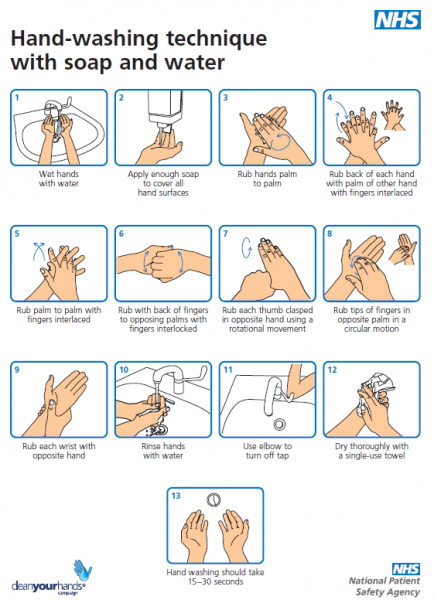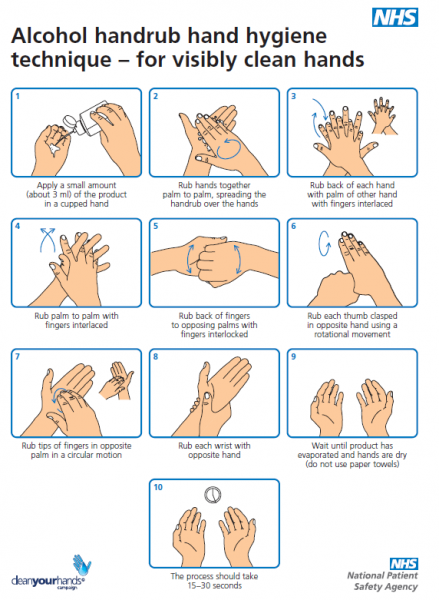Hand Hygiene
Washing your hands regularly helps you and your loved ones to stay healthy as it is the most effective way to prevent the spread of germs. Clean hands can stop germs from spreading from one person to another and throughout an entire community”from your home and workplace to childcare facilities and hospitals.
You should always clean your hands:
- Before, during, and after preparing food.
- Before eating food.
- Before and after caring for someone at home who is sick with vomiting or diarrhoea.
- Before and after treating a cut or wound.
- After using the toilet.
- After changing diapers or cleaning up a child who has used the toilet.
- After blowing your nose, coughing, or sneezing.
- After touching an animal, animal feed, or animal waste.
- After handling pet food or pet treats.
- After touching garbage.
Guidelines for Hand Hygiene
Handwashing technique
- A good hand washing technique involves wetting the hands under warm running water before applying liquid soap.
- The hands should be rubbed together for 15 20 seconds so that the soapy water comes into contact with all surfaces of each hand, (See figure 1).
- It is important to wash under any rings and it is advisable to remove wristwatches before washing.
- Hands should be rinsed thoroughly and then dried with paper towels.
Using hand sanitiser
- Hands should be free of visible dirt.
- Enough hand sanitiser should be used to completely cover all the surfaces of each hand.
- The hands should be rubbed together until the solution has evaporated.



